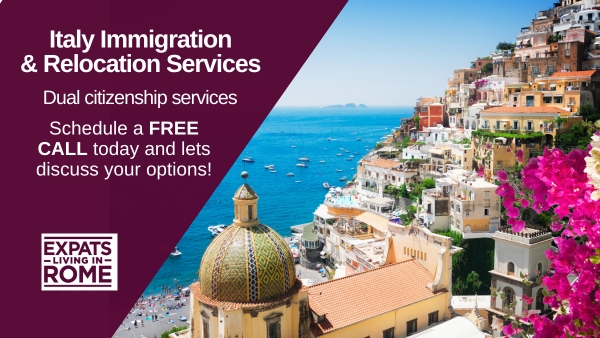Driving and Owning a Car in Italy
by Adriana ruiz
Here’s what you need to know to stay compliant and drive legally in Italy including basic information about insurance requirements, and vehicle registration process.
Driving in Italy as an Expat
If you have a valid foreign driving license, you may be able to use it for a limited time, depending on your country of origin. Here are the general rules:
• EU/EEA Licenses: If you hold a driving license from an EU or EEA country, it remains valid in Italy. However, after residing in Italy for two years, you are required to convert it into an Italian license.
• Non-EU Licenses: If you come from a non-EU country, you can use your foreign license for up to one year from your official residency date. After that, you must obtain an Italian license, which may require taking both a written and a practical driving test.
• International Driving Permit (IDP): If your license is not in Italian, you should obtain an IDP before arriving in Italy. This is required for non-EU license holders driving in Italy temporarily.
Car Insurance in Italy
Car insurance is mandatory in Italy, and driving without it can lead to severe fines and legal consequences. The minimum required coverage is RC Auto (Responsabilità Civile Auto), which covers liability for damage to third parties. Additional coverage options include:
• Comprehensive Insurance (Kasko): Covers damage to your own vehicle in addition to third-party liability.
• Theft and Fire Insurance: Protects against vehicle theft or fire damage.
• Roadside Assistance: Useful for breakdowns or accidents.
When purchasing insurance, consider getting quotes from multiple providers. Rates vary depending on factors like vehicle type, driving history, and residency status.
Registering a Car in Italy
If you own a car or plan to buy one in Italy, registration is a crucial step. Here’s what you need to know:
• Buying a New or Used Car: New cars must be registered at the Motorizzazione Civile (Italian DMV), while used cars require a transfer of ownership through the Automobile Club d’Italia (ACI).
• Required Documents: You’ll need a codice fiscale (Italian tax code), proof of residency, ID, and insurance policy.
• Fees: Registration costs vary, including taxes, administrative fees, and insurance costs.
Getting Italian Plates
If you bring a foreign-registered car to Italy, you must switch to Italian plates within a certain timeframe:
• EU Cars: You have six months from the date of establishing residency to register the car in Italy.
• Non-EU Cars: Registration is required immediately upon obtaining residency.
• Failure to Comply: If you don’t re-register your vehicle on time, you risk fines and potential vehicle confiscation.
Have you recently started driving in Italy as an expat? Share your experiences or ask questions in our Facebook group.

What’s On in Italy: January 2026 Events Expats Will Love
January in Italy may be quieter than the summer months, but it’s packed with culture, tradition, fashion, and great opportunities to explore without the crowds. From iconic festivals and fashion weeks to free museum days and winter food experiences, here are 12 events happening across Italy in January 2026 that expats shouldn’t miss. 🔥 Fòcara […]

The Year Italy’s Expat Landscape Shifted
Italy’s expat community experienced notable changes in 2025. While metropolitan hubs like Rome and Milan remain magnets for international residents, the most striking trend has been the surge of expats relocating to smaller Italian towns—many with populations under 20,000. For many, this shift reflects affordability concerns, evolving lifestyle priorities, and the changing policy environment around […]

How to Navigate the Property Search and Purchase Process in Italy
Looking to buy property in Italy? We are here to help you step by step! Have you always dreamed of owning a home in Italy—whether it’s a charming countryside farmhouse, a coastal villa, or a cozy apartment in a historic town? We’re here to help turn that dream into reality. Buying real estate in […]

New Year’s Eve Free Concert 2026 in Rome at Circo Massimo
Rome is getting ready to welcome 2026 with an unforgettable night of music, energy, and spectacle. With the support of RDS 100% Grandi Successi, Roma Capitale has officially announced the highly anticipated New Year’s Eve Concert 2026, taking place on December 31st starting at 9:00 PM in the iconic setting of Circo Massimo, one of […]
What’s Quietly Changing in Italy (and What You Should Check)
Italy did not overhaul immigration overnight—but several updates have shifted how things work behind the scenes. Some affect people already living here, others impact those applying from abroad, and a few could catch you off guard if you rely on outdated advice. Nothing here is panic-worthy, but all of it is worth checking before a […]

Single Female Travelers in Italy: Practical, confident, and connected
Rome rewards curiosity and courage. This guide offers grounded tips, cultural insight, and community support so you can explore with confidence—day and night, solo and on your own terms. Start with confidence “Solo doesn’t mean alone.” In Rome, you’ll find friendly locals, layered history, and a vibrant expat network. A little preparation goes a long […]

Christmas in Italy 2025: A Magical Season for Expats Across Italy
Christmas in Italy isn’t just a holiday — it’s a season full of history, flavor, celebration, and heartfelt traditions that bring families, towns, and entire regions to life. Whether you’re an expat experiencing your first Italian Christmas or a returning fan of the magic, 2025 promises some beautiful celebrations across the country. Here’s what to […]

Tax Residency Incentives in Italy — Your Guide (2025)
Italy offers several tax incentives designed to attract retirees, entrepreneurs, high-net-worth individuals and remote workers. These regimes can be extremely generous — but they are complex and often conditional. This guide explains the main options in 2025, who qualifies, and how we can help you plan a compliant move. Why Italy Offers Tax Incentives Italy […]




